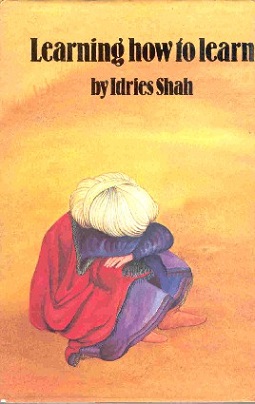
Cognitive Behavioral Therapy (CBT) is a psycho-social intervention that aims to reduce symptoms of various mental health conditions, primarily depression and anxiety disorders. Cognitive behavioral therapy is one of the most effective means of treatment for substance abuse and co-occurring mental health disorders. CBT focuses on challenging and changing cognitive distortions and their associated behaviors to improve emotional regulation and develop personal coping strategies that target solving current problems. Though it was originally designed to treat depression, its uses have been expanded to include the treatment of many mental health conditions, including anxiety, substance use disorders, marital problems, ADHD, and eating disorders. CBT includes a number of cognitive or behavioral psychotherapies that treat defined psychopathologies using evidence-based techniques and strategies.

Psychotherapy is the use of psychological methods, particularly when based on regular personal interaction, to help a person change behavior, increase happiness, and overcome problems. Psychotherapy aims to improve an individual's well-being and mental health, to resolve or mitigate troublesome behaviors, beliefs, compulsions, thoughts, or emotions, and to improve relationships and social skills. Numerous types of psychotherapy have been designed either for individual adults, families, or children and adolescents. Certain types of psychotherapy are considered evidence-based for treating some diagnosed mental disorders; other types have been criticized as pseudoscience.

Psychology is an academic and applied discipline involving the scientific study of human mental functions and behavior. Occasionally, in addition or opposition to employing the scientific method, it also relies on symbolic interpretation and critical analysis, although these traditions have tended to be less pronounced than in other social sciences, such as sociology. Psychologists study phenomena such as perception, cognition, emotion, personality, behavior, and interpersonal relationships. Some, especially depth psychologists, also study the unconscious mind.

Aaron Temkin Beck was an American psychiatrist who was a professor in the department of psychiatry at the University of Pennsylvania. He is regarded as the father of cognitive therapy and cognitive behavioral therapy (CBT). His pioneering methods are widely used in the treatment of clinical depression and various anxiety disorders. Beck also developed self-report measures for depression and anxiety, notably the Beck Depression Inventory (BDI), which became one of the most widely used instruments for measuring the severity of depression. In 1994 he and his daughter, psychologist Judith S. Beck, founded the nonprofit Beck Institute for Cognitive Behavior Therapy, which provides CBT treatment and training, as well as research. Beck served as President Emeritus of the organization up until his death.

Rational emotive behavior therapy (REBT), previously called rational therapy and rational emotive therapy, is an active-directive, philosophically and empirically based psychotherapy, the aim of which is to resolve emotional and behavioral problems and disturbances and to help people to lead happier and more fulfilling lives.

Emotional reasoning is a cognitive process by which an individual concludes that their emotional reaction proves something is true, despite contrary empirical evidence. Emotional reasoning creates an 'emotional truth', which may be in direct conflict with the inverse 'perceptional truth'. It can create feelings of anxiety, fear, and apprehension in existing stressful situations, and as such, is often associated with or triggered by panic disorder or anxiety disorder. For example, even though a spouse has shown only devotion, a person using emotional reasoning might conclude, "I know my spouse is being unfaithful because I feel jealous."
Acceptance and commitment therapy is a form of psychotherapy, as well as a branch of clinical behavior analysis. It is an empirically based psychological intervention that uses acceptance and mindfulness strategies along with commitment and behavior-change strategies to increase psychological flexibility.
Suicide intervention is a direct effort to prevent a person or persons from attempting to take their own life or lives intentionally.

Thought Field Therapy (TFT) is a fringe psychological treatment developed by American psychologist Roger Callahan. Its proponents say that it can heal a variety of mental and physical ailments through specialized "tapping" with the fingers at meridian points on the upper body and hands. The theory behind TFT is a mixture of concepts "derived from a variety of sources. Foremost among these is the ancient Chinese philosophy of chi, which is thought to be the 'life force' that flows throughout the body". Callahan also bases his theory upon applied kinesiology and physics. There is no scientific evidence that TFT is effective, and the American Psychological Association has stated that it "lacks a scientific basis" and consists of pseudoscience.

Ivan Tyrrell is a British educator, writer, and artist. He lives with his wife Véronique in the Cotswolds, England.
Cognitive therapy (CT) is a type of psychotherapy developed by American psychiatrist Aaron T. Beck. CT is one therapeutic approach within the larger group of cognitive behavioral therapies (CBT) and was first expounded by Beck in the 1960s. Cognitive therapy is based on the cognitive model, which states that thoughts, feelings and behavior are all connected, and that individuals can move toward overcoming difficulties and meeting their goals by identifying and changing unhelpful or inaccurate thinking, problematic behavior, and distressing emotional responses. This involves the individual working with the therapist to develop skills for testing and changing beliefs, identifying distorted thinking, relating to others in different ways, and changing behaviors. A cognitive case conceptualization is developed by the cognitive therapist as a guide to understand the individual's internal reality, select appropriate interventions and identify areas of distress.

Lawrence J. Crabb, Jr. was an American Christian counselor, author, Bible teacher, spiritual director, and seminar speaker. Crabb wrote several best-selling books and was the founder and director of NewWay Ministries and co-founder of his legacy ministry, Larger Story. He served as a Spiritual Director for the American Association of Christian Counselors and taught at several different Christian colleges including Colorado Christian University.

Internet addiction disorder (IAD) can otherwise be referred to as problematic internet use or pathological internet use. It is generally defined as problematic, compulsive use of the internet, that results in significant impairment in an individual's function in various aspects of life over a prolonged period of time. Young people are at particular risk of developing internet addiction disorder, with case studies highlighting students whose academic performance plummets as they spend more and more time online. Some also experience health consequences from loss of sleep, as they stay up later and later to chat online, check for social network status updates or to further progress in a game.

Learning How to Learn: Psychology and Spirituality in the Sufi Way is a book by the writer Idries Shah that was first published by Octagon Press in 1978. Later editions by Harper & Row (1981) and Penguin Books include an introduction by Nobel Prize Winner Doris Lessing.
The expectation fulfilment theory of dreaming, proposed by psychologist Joe Griffin in 1993, posits that the prime function of dreams, during REM sleep, is to act out metaphorically non-discharged emotional arousals (expectations) that were not expressed during the previous day. It theorises that excessive worrying arouses the autonomic nervous system, which increases the need to dream during REM sleep. This deprives the individual of the refreshment of the mind and body brought about by regenerative slow-wave sleep.
Logic-based therapy (LBT) is a proposed modality of philosophical counseling developed by philosopher Elliot D. Cohen beginning in the mid-1980s. It is a philosophical variant of rational emotive behavior therapy (REBT), which was developed by psychologist Albert Ellis. However, there have been no independent, controlled studies to measure its therapeutic value or advantages over classical REBT.
Human Givens is the name of a theory in psychotherapy formulated in the United Kingdom, first outlined by Joe Griffin and Ivan Tyrrell in the late 1990s, and amplified in the 2003 book Human Givens: A new approach to emotional health and clear thinking. The human givens organising ideas proffer a description of the nature of human beings, the 'givens' of human genetic heritage and what humans need in order to be happy and healthy based on the research literature. Human Givens therapy draws on several psycho therapeutic models, such as motivational interviewing, cognitive behavioural therapy, psychoeducation, interpersonal therapy, imaginal exposure therapy and NLP such as the Rewind Technique, while seeking to use a client's strengths to enable them to get emotional needs met.
Interpersonal Cognitive Behavioral Therapy (I-CBT) is a branch of cognitive behavioral therapy (CBT) that is mainly used to treat anxiety, depression, attention-deficit hyperactivity disorder (ADHD), obsessive compulsive disorder (OCD), post traumatic stress disorder (PTSD), and autism spectrum disorder. It was developed by Thomas Cordier of Glastonbury Connecticut, USA.
Caetextia is a term and concept first coined by psychologists Joe Griffin and Ivan Tyrrell to describe a chronic disorder that manifests as a context blindness in people on the autism spectrum. It was specifically used to designate the most dominant manifestation of autistic behaviour in higher-functioning individuals. Griffin and Tyrell also suggested that caetextia "is a more accurate and descriptive term for this inability to see how one variable influences another, particularly at the higher end of the spectrum, than the label of 'Asperger's syndrome'".
Rapid resolution therapy (RRT) is an alternative modality of psychotherapy created by Jon Connelly that aims to resolve mental health and life challenges within a shorter time frame compared to some other therapies. It was originally designed for treating PTSD, survivors of sexual violence, and single-event trauma. There is limited academic research on the efficacy of RRT. Issues addressed by rapid resolution therapy can include anxiety, depression, anger, grief, insomnia, addiction/relapse prevention, phobias, compulsive habits, weight loss issues, and pain management. The RRT process aims to help participants permanently overcome troubling thoughts, emotions, and behaviors in a light-hearted way.








